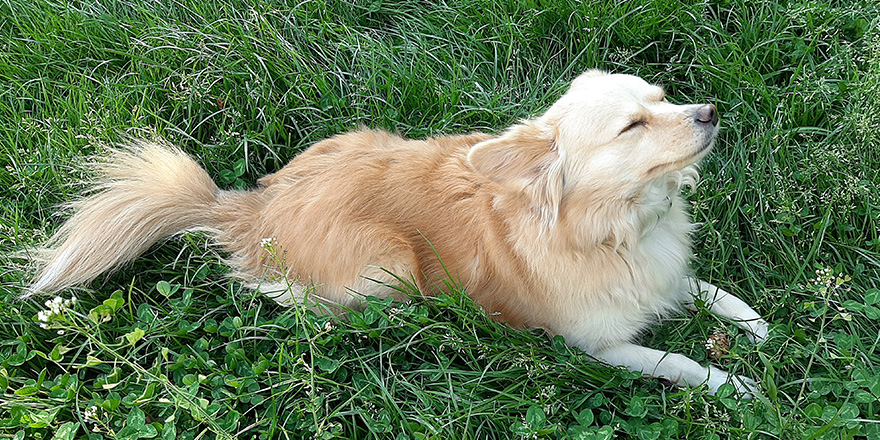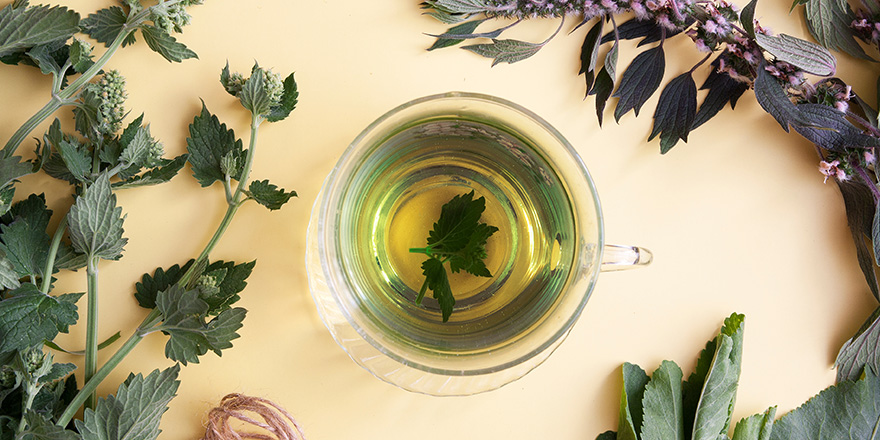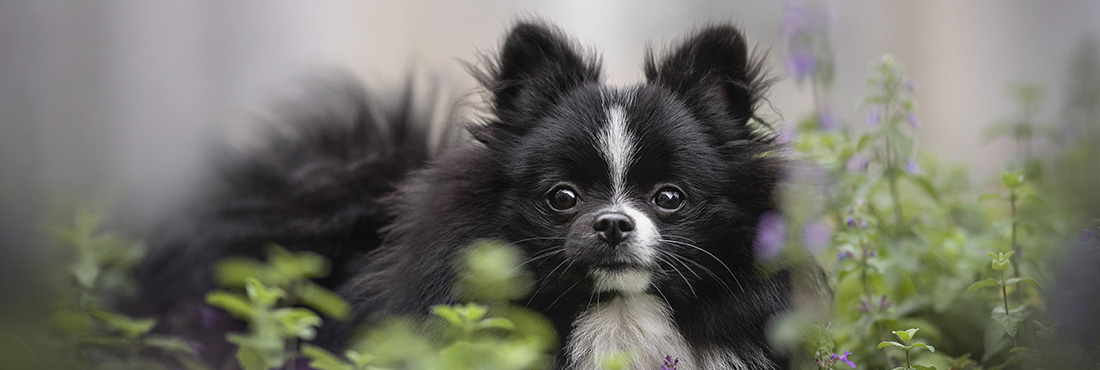We all know that most cats simply adore catnip. It makes some go crazy and roll around on the floor, while others happily sit and chill with mouths slightly foaming from pleasure! Catnip is super safe for cats, but is catnip safe for dogs? In this article, we will look at catnip in all its forms: catnip tea, catnip toys, catnip oil, and fresh catnip. We’ll look at what it is and then discuss whether it’s safe for dogs. Will catnip hurt a dog?
What is Catnip?
Catnip is a plant that is a member of the mint family, and its official name is Nepeta Cataria. This plant is commonly used as a tea for humans, but unfortunately, we do not benefit from the same effects.
Catnip is pretty special, though. As well as containing various volatile oils, acids, sterols, and tannins, there is also an active ingredient in the catnip plant called nepetalactone, which is the chemical that creates a reaction with cats. The plant can be used as a natural antiseptic as it contains wonderful antibacterial and healing properties that can benefit animals. Dried catnip is also used in cat toys.
But are there any benefits to catnip for animals other than felines? And is catnip bad for dogs?
Is Catnip Safe for Dogs?

If you’re an avid animal lover wondering whether your kitty can share his/her catnip with your dog, then you will be pleased to hear that catnip plants are not just for our feline friends – catnip for dogs is non-toxic and safe.
Can you Give Dogs Catnip?
Dog owners will be pleased to hear that you can indeed give catnip to dogs, and it’s even safe to ingest. Interestingly, catnip doesn’t have the same effect on dogs as it does on cats.
But we’ll talk a little bit more about that later…
Catnip for Dogs and its Benefits
There are so many benefits to catnip that dog owners need to know. After reading this article, you’ll likely be stocking up your cupboard for times when it is needed most.
This herb contains various beneficial minerals and vitamins, including vitamins C and E, tannins, flavonoids, and magnesium. This is the perfect combination for treating your dog’s digestive issues and any gastrointestinal upset.
If you have an anxious dog, catnip may provide the perfect solution, as a little bit of this herb can have a mild sedative effect on your dog and a natural calming effect.
Not only can catnip calm dogs, but it can also help them develop a healthy sleeping pattern too.
The wonder plant isn’t just great for your dog’s digestive system and anxiety; it can also be used as a natural antiseptic for minor cuts.
Does Catnip Affect Dogs?

We have talked about the benefits of catnip with dogs, but the question you’re probably thinking is…what does catnip do to dogs?
The fascinating thing about catnip is that dogs react very differently to it than cats. Does catnip work on dogs? Absolutely! But the effect of catnip on dogs is very different from what you’d expect. If you’ve ever observed cats eating or playing with catnip toys, you’ll know they can start acting a bit overexcited and sometimes completely crazy!
With dogs, catnip has the opposite effect. While your cat would feel stimulated by catnip, your dog will likely feel relaxed and sedated, which could help with anxiety and sleep. There will be a noticeable difference in your dog’s reaction to the plant. They will likely seem sleepy and indifferent, rather than the typical crazy cat reaction.
How Do I Give Catnip to My Dog?

Always consult your veterinarian if you have doubts about giving your dog catnip. This plant is not a health supplement but a medical aid for acute conditions.
As it’s non-toxic and safe for dogs, you can sprinkle a small amount – just half a teaspoon – into your dog’s food or add a few fresh leaves to their drinking water.
Always monitor how your dog responds to the catnip and as we mentioned before, if you have any concerns, consult a veterinarian for advice.
Before scrolling down, feel free to check our guide on the Best Catnips.
Can Dogs Play With Catnip Toys?
The jury is out whether or not catnip toys are safe for dogs. As these toys have been predominantly designed for cats, there is no real need to give them to your dog. The problem with catnip toys is that they are often very small, with little bits and pieces that your dog could ingest. This could become a serious choking hazard.
We advise that you reserve your catnip toy as a treat just for your cat.
Can Dogs Eat Anise?

Anise acts like catnip for dogs and is safe in small doses. If you give your dog too much aniseed, they can suffer from some unpleasant side effects. Too much anise can cause stomach upset and can cause an imbalance in the nervous system.
A small amount, however, is safe and non-toxic for dogs.
If you would like to try anise (not to be mistaken with star anise, which is not the same), then you can use whole or crushed aniseed to release the aroma and fill a dog toy with a moderate amount. You can add a small pinch of ground aniseed to dog food or treats.
Aniseed essential oil is also readily available, but you should never add this directly to your dog’s skin or allow them to digest the oil without it being suitably diluted/mixed. You could add a drop to your dog’s bed or collar and test to see if they enjoy the aroma.
How Does Anise Affect Dogs?
While catnip acts as a stimulant for cats, anise can have the same effect on dogs. But much like catnip, it won’t have an effect on every dog. Anise can cause different reactions from hyperactivity to sedative and mellowness.
Aniseed, a seed from the Pimpinella Anisum plant, is used in canine nose training due to its strong scent. The strong aroma can produce a playful and excited response in your dog, but others may dislike the smell.
Conclusion
As a sensible dog owner, monitoring your dog’s reaction to anise or catnip is important. Introduce new dog-friendly plants and herbs to your four-legged friend slowly and according to professional advice. If you feel your dog is reacting negatively, consult a veterinarian ASAP.







